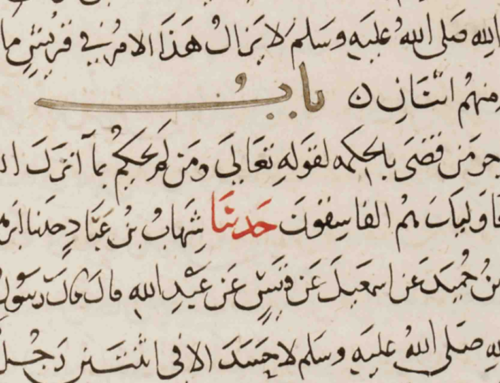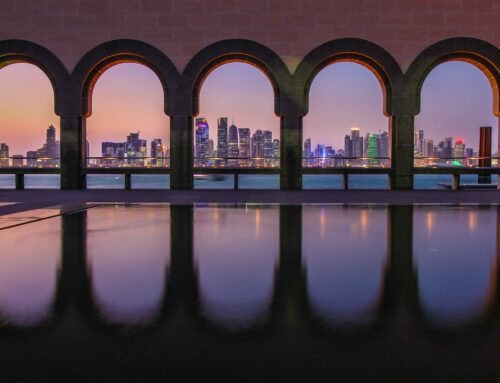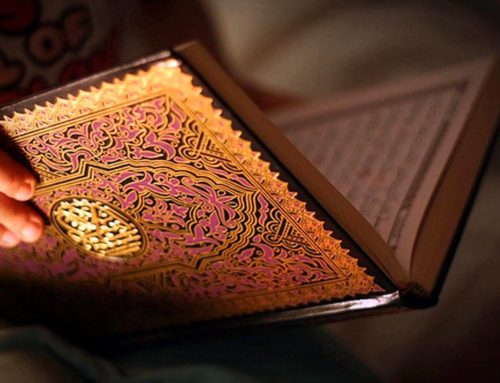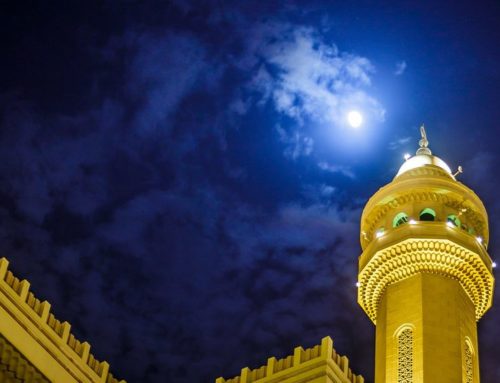Translated by Saad Khan
In regard to making things halal (permitted) and haram (prohibited), it is the well-established belief of the Ahl al-Sunnah wa ‘l-Jama’ah that Allah alone has authority over it. To make something halal or haram is exclusively the work of Allah Most High and He is unique in this. This is purely His right; no one else is involved in this process in any manner. Neither does anyone have this power in essence nor has Allah relegated this power to anyone. [1]It is the belief of Twelver Shi’ahs that the Prophet (Allah bless him and give him peace) and the twelve imams have been given the authority to permit and prohibit. It is mentioned in Usul … Continue reading
Shaykh Kamal al-Din ibn al-Humam al-Hanafi (d. 861H) writes: “There is no difference of opinion in that Allah Most High, the Lord of the Universe, is [solely] the Ruler.” ‘Allamah Muhibbullah Bihari al-Hanafi (d. 1119H) writes in his Musallam al-Thubut: “Judgment is only from Allah.” The famous book of principles of fiqh, Sharh al-Talwih ‘ala ‘l-Tawdih [2]By ‘Allamah Sa’d al-Din Mas’ud al-Taftazani (d. 792H). (p.35), contains more or less a similar statement. ‘Allamah Ibn Amir Hajj (d. 879H) in Tahrir al-Usul (2:79) and ‘Allamah Jamal al-Din Isnawi al-Shafi’i (d. 772H) in Sharh Minhaj al-Usul (p.22) have explained this issue in detail that legislation is only from Allah Most High.
As for the command of the Prophet (Allah bless him and give him peace), the Ahl al-Ijma’ (jurists whose consensus is binding) and the mujtahids, it is only a manifestation of Allah Most High’s command. The one who commands is only Allah Most High. ‘Allamah Abu Ja’far al-Nahhas (d. 338H) writes in his well-known book, Al-Nasikh wa ‘l-Mansukh: “This is the way of judgments that they are from Allah Almighty alone.” (p.2)
Shah Waliullah Muhaddith al-Dahlawi (d. 1174H / may Allah have mercy on him) writes in his famous and unparalleled book Hujjat Allah al-Balighah [chapter 39 titled The Categories of Shirk]: “The secret behind this is that making something permitted (halal) or forbidden (haram) is an expression for a creative process (takwin) that is operative at the level of Malakut (Realm of Sovereignty) whereby one will or will not be held accountable for a certain thing. Thus this creative process (takwin) is the reason for a person being or not being held accountable for a thing, and this is part of the attribute of Allah Most High. As for the attribution of permitting (tahlil) or prohibiting (tahrim) to the Prophet (Allah bless him and give him peace), it is in the sense of his speech being a decisive sign (imarah) of Allah’s permitting or forbidding. As for the attribution of them [permitting and forbidding] to the mujtahids of his community, this is in the sense of their transmitting element of the divine legislation based on the revealed text of the lawgiver, or their inferring the meaning of his words.” [3]Quote taken with permission from the English translation of Hujjat Allah al-Balighah by Marica K.Hermansen.
From the above statement of Shah Waliullah al-Dahlawi the following becomes evident:
[1] Rulings of Shari’ah are derived from matters related to takwin. Takwin is from the attributes of Allah Most High and there is no associate of Him in this, just like His other attributes.
[2] In matters of Shari’ah, the attribution of permitting and prohibiting to the Prophet (Allah bless him and give him peace) is in the sense that he is a messenger from Allah. The Prophet’s conveying something as permitted or prohibited is a decisive sign that Allah Most High has deemed such a thing permitted or prohibited. This does not mean that the Prophet (Allah bless him and give him peace) has the authority to permit and prohibit.
[3] The attribution of permitting and prohibiting to mujtahids is in the sense … that they infer rulings from the sources of the Shari’ah. The attribution of permitting and prohibiting to the mujtahids is not in the sense that they themselves can permit or prohibit something.
(Excerpt from Dil ka Surur, p. 14-17, Maktabah Safdariyyah)
| ↑1 | It is the belief of Twelver Shi’ahs that the Prophet (Allah bless him and give him peace) and the twelve imams have been given the authority to permit and prohibit. It is mentioned in Usul al-Kafi, ch.111, from Abu Ja’far “…O Muhammad, Allah Most High, is One eternally. He created Muhammad, ‘Ali and Fatimah. They were there for a thousand years. Then He created all other things. He made them to witness the creation of all other things, made obedience to them obligatory and gave control of the affairs of the creation to them. They can, thus, make lawful whatever they wish and unlawful whatever they wish…”
It is also mentioned in Usul al-Kafi, ch.52, “Al-Husayn ibn Muhammad has narrated from Mu’ala ibn Muhammad from al-Washsha’ from Hammad ibn ‘Uthman from Zurarah from Abu Ja’far who has said the following, ‘The Messenger of Allah sanctioned the compensation for a damaged eye and the blood-money for the slain person. He pronounced the consumption of nabidh (a beverage from dates) and all intoxicants as unlawful.’ A man asked the imam, ‘Did the Messenger of Allah sanction this law without receiving any thing (from Allah)?’ the Imam said, ‘Yes, so it could be found out who obeys the Messenger and who disobeys him.” Molwi Ahmad Rada Khan Barelwi and his followers agree with Twelver Shi’ahs in this regard. Molwi Amjad ‘Ali A’zimi, the deputy (khalifah) of Ahmad Rada Khan Barelwi, writes in Bahar-i-Shari‘ah (1:30-31), a book of fiqh for the general public, “Our Master, the Prophet (Allah bless him and give him peace), is the absolute deputy of Allah Almighty. He has been given control (tassaruf) over the entire universe. He may do, as he desires. Give to whomsoever he wishes. Take away from anyone whatever he desires. None in the universe can deny his rulings. The entire universe is under his governance and he is under the authority of none except Allah. He is the owner (malik) of all humans. Anyone who does not accept him to be his owner (malik) remains devoid of the sweetness of the Sunnah. All the earth is his property. Paradise is his estate. The angels of earth and the sky are under his authority. The keys to paradise and hell have been given to him in his noble hand. Sustenance, goodness and other types of blessings are distributed from his noble office. This world and the hereafter is a portion of his blessings. The rulings of Shari‘ah have been delegated to his authority. He may make impermissible (haram) for anyone whatever he decides. Similarly, he may make permissible (halal) whatever he wishes and exempt whatever obligation (fard) he desires.” |
|---|---|
| ↑2 | By ‘Allamah Sa’d al-Din Mas’ud al-Taftazani (d. 792H). |
| ↑3 | Quote taken with permission from the English translation of Hujjat Allah al-Balighah by Marica K.Hermansen. |







Assalam o ‘alaykum,
More quotes by the scholars of Islam on this topic as mentioned by Shaykh Sarfaraz Khan Safdar.
[1] Shaykh al-Islam ‘Allamah Badr al-Din ‘Ayni (d. 855H) writes, “Indeed, legalization (tahlil) and prohibition (tahrim) is from Allah alone, humans have no say in this matter.” (‘Umdat al-Qari, 12:745)
ان التحليل والتحريم من عند اللّه لا مدخل لبشر
[2] Imam Shah ‘Abd al-‘Aziz Dahlawi (d. 1239H) writes, “Correct madhab is that the matter of legislation is not entrusted to prophet; since it is a post of messenger and emissary and not deputy of Allah and not an associate in His affairs. Whatever is regarded halal and haram (lawful and unlawful) by Allah, it is only preached by a prophet, he has no power on his own.” (Tuhfah Ithna ‘Ashariyyah, p.335)
مذهب صحيح آنست كه امر تشريع مفوض به ۑيغمبر نمى باشد زيرا كه منصب ۑيغمبرى منصب رسالت وايلچى گريمت نه نيابت خدا نه شركت دركارخانه خدائى آنچه خداۓ تعالى حلال وحرام فرمايد آں را رسول تبليغ مى كند وبس ازطرف خود اختيارے ندارد
He writes at another place, “It is obvious that imam and even a prophet is not a lawmaker (Shar’i), lawmaker is Allah Most High alone.” (Tuhfah Ithna ‘Ashariyyah, p.361)
بديهى است كه امام بلكه نبى نيز شارع نيست شارع حق تعالى است
[3] Shaykh ‘Abd al-Wahhab Sha‘rani (d. 772H) quotes from Shaykh Muhyi al-Din ibn ‘Arabi (d. 638H) as follows, “Know that lawmaker (Shar’i) is only Allah … the Prophet (Allah bless him and give him peace) only delivers the message of Allah which He likes, the Prophet never speaks out of his own desire [in the matters of Religion] and does not forget any thing for which he was ordered to preach, it is but revelation revealed [to him].” (Al-Yawaqit wa ‘l-Jawahir, 2:42)
ونحن نعلم ان الشارع هواللّه تعالى٠٠٠ـ فانه صلى اللّه عليه وسلم مبلغ عن اللّه احكامه فيما اراده اللّه تعالى لا ينطق قط عن هوى نفسه ولا ينسى شيئا مما امره بتبليغه ان هو الا وحى يوحى
[4] Shaykh ‘Abd al-Haq Muhaddith Dahlawi (d. 1052H) writes, “The prohibition (tahrim) was attributed to the Prophet Ibrahim (may the peace of Allah be upon him) in a way that he preached it and spread the divine command; since it is only Allah who makes law and gives commandments and His command is eternal (qadim). The prophets are emissaries to convey the message.” (Ashi’ath al-Lam‘at, 2:178)
اسناد تحريم بابراهيم عليه السلام از جهت آں باشد كه وے رسانيد واعلام كرد حكم الهى زيرا كه حاكم بشرائع واحكام خداتعالى است وحكم وے قديم است انبيأ عليهم السلام رساننده آں احكام اند
[5] ‘Allamah Sayf al-Din al-Amidi al-Shafi’i (d. 631H) writes, “Know that there is no absolute master but Allah and there is no command (hukm) but which is ordained by Him. From this it can be derived that the mind neither knows good and bad nor obligates thankfulness to benefactor, and there is no command before revelation of the law (Shar’a).” (Al-Ihkam fi-Usul al-Ahkam, p.113)
علم انه لا حاكم سوى اللّه تعالى ولا حكم الا ما حكم به ويتفرع عليه ان العقل لا يحسن ولا يقبح ولا يوجب شكر المنعم وانه لا حكم قبل ورود الشرع
[6] ‘Allamah Bahr al-‘Ulum (d. 1225H) writes in Sharh Musallam al-Thubut, “In this matter that judgment (hukm) is from Allah alone, there is a consensus (Ijma’) of Ummah.”
Barelwis really have no answers to such refutation. I have yet to see anyone from their camp to come forward and refute this article.
Assalam o ‘alaykum,
Imam Ghazali writes in Al-Mustasfa min ‘Ilm al-Usul, p.8:
وفي البحث عن الحاكم يتبين أن لا حكم إلا لله وأنه لا حكم للرسول ولا للسيد على العبد ولا لمخلوق على مخلوق بل كل ذلك حكم الله تعالى ووضعه لا حكم لغيره
“In discussing the Ruler, [we] demonstrate that there is no rule except for Allah; and [in fact], the Messenger has no rule; nor a master over his subject; nor any creature over other. Certainly, all Rule belongs to Allah and His imposition. Non other than Him has rule.”
Assalam o ‘alaykum,
It says in Al-Din al-Qayyim, written in Arabic by Mawlana Habib Ahmad al-Kiranawi under the supervision of Hakim al-Ummah Mawlana Ashraf ‘Ali al-Thanawi as part of the general introduction to the 20-volume compendium of hadith-proofs for the Hanafi madhhab, I’la al-Sunan,
“This question and this answer are baseless because no one claimed that the ‘ulama are to be obeyed independently, rather independent obedience is specific to Allah (Exalted is He), and the Messenger is only obeyed because He is an informant of the rules of Allah, and the ‘ulama are obeyed because they are informants of the rules of Allah and His Messenger. Hence, the claim that the obedience of the Messenger is independent is false.” (Al-Din al-Qayyim, p.34)